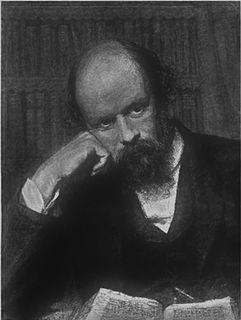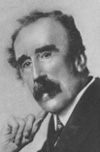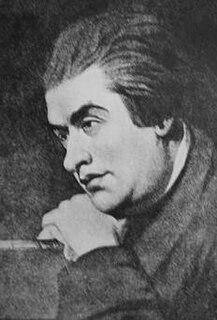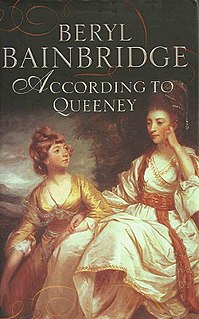
Samuel Johnson, often called Dr Johnson, was an English writer who made lasting contributions as a poet, playwright, essayist, moralist, critic, biographer, editor and lexicographer. He was a devout Anglican, and a committed Tory. The Oxford Dictionary of National Biography calls him "arguably the most distinguished man of letters in English history". James Boswell's Life of Samuel Johnson was selected by Walter Jackson Bate as "the most famous single work of biographical art in the whole of literature".

George Birkbeck Norman Hill was an English editor and author.

Arthur Murphy, also known by the pseudonym Charles Ranger, was an Irish writer.

The Life of Samuel Johnson, LL.D. (1791) by James Boswell is a biography of English writer Dr. Samuel Johnson. The work was from the beginning a critical and popular success, and represents a landmark in the development of the modern genre of biography. It is notable for its extensive reports of Johnson's conversation. Many have claimed it as the greatest biography written in English, but some modern critics object that the work cannot be considered a proper biography. Boswell's personal acquaintance with his subject began in 1763, when Johnson was 54 years old, and Boswell covered the entirety of Johnson's life by means of additional research. The biography takes many critical liberties with Johnson's life, as Boswell makes various changes to Johnson's quotations and even censors many comments. Nonetheless, the book is valued as both an important source of information on Johnson and his times, as well as an important work of literature.

Percy Hetherington Fitzgerald (1834–1925) was an Anglo-Irish author and critic, painter and sculptor. He was born in Ireland at Fane Valley, County Louth, educated at Belvedere college Dublin, Stonyhurst College, Lancashire, and at Trinity College, Dublin. He was called to the Irish bar and was for a time crown prosecutor on the northeastern circuit.

Thomas Davies was a Scottish bookseller and author. He studied at the University of Edinburgh and was for some years on the stage; but having been ridiculed by Churchill in The Rosciad he gave up acting and opened a bookshop in Covent Garden. It was here that in 1763 he introduced Boswell to Dr. Johnson, who was his close friend and to whom he dedicated his edition of the works of Massinger. He wrote a successful Life of Garrick (1780), which passed through four editions, and Dramatic Miscellanies.

Samuel Johnson's Life of Mr Richard Savage (1744), short title Life of Savage and full title An Account of the Life of Mr Richard Savage, Son of the Earl Rivers, was the first major biography published by Johnson. It was released anonymously in 1744, and detailed the life of Richard Savage, a London poet and friend of Johnson who had died in 1743. The biography contains many details of Savage's account of his own life, including claims that he was the illegitimate child of a noble family that quickly disowned and abandoned him at birth.

Anna Williams was a Welsh poet. She was a close companion of the writer Samuel Johnson, who said he was "very desolate" when she died. Cataracts left Williams blind or visually impaired in the 1740s, when Johnson took her under his wing and helped to support her. She joined his household until her death, apart from an interval of six years. In return, Williams supervised Johnson's household management and expenses. Besides poetry, she wrote an unfinished dictionary of philosophical terms and translated and published a French biography of the emperor Julian.
Messiah (1712) is a poem by Alexander Pope which Samuel Johnson translated into Latin in December 1728. This was the first poem of Johnson's to be published, and consists of 119 lines written in Latin verse. The whole translation was completed in two days and was submitted to Pope for appraisal.

The Vanity of Human Wishes: The Tenth Satire of Juvenal Imitated is a poem by the English author Samuel Johnson. It was written in late 1748 and published in 1749. It was begun and completed while Johnson was busy writing A Dictionary of the English Language and it was the first published work to include Johnson's name on the title page.

Irene is a Neoclassical tragedy written between 1726 and 1749 by Samuel Johnson. It has the distinction of being the work Johnson considered his greatest failure. Since his death, the critical consensus has been that he was right to think so.
The Life of Samuel Johnson or Life of Samuel Johnson, LL. D. was written by John Hawkins in 1787. It was the first full biography of Samuel Johnson—with Thomas Tyers's A Biographical Sketch of Dr Samuel Johnson being the first short postmortem biography. Hawkins was a friend of Johnson, but many in Johnson's circle did not like him. After Johnson's death, Hawkins was approached to produce a biography on Johnson and an edition of his works. His biography described Johnson's life, including previously unknown details about his writing career, but it was plagued by digressions into unrelated topics. Hawkins's Life of Samuel Johnson came under swift attack from critics, from friends of Johnson, and from his literary rival, James Boswell immediately after its publication. Many of the critics attacked Hawkins for his lack of strict focus on Johnson's life or for his unfavourable depiction of Johnson in various circumstances.
The Anecdotes of the Late Samuel Johnson or the Anecdotes of the Late Samuel Johnson, LL.D. During the Last Twenty Years of His Life by Hester Thrale, also known as Hester Lynch Piozzi, was first published 26 March 1786. It was based on the various notes and anecdotes of Samuel Johnson that Thrale kept in her Thraliana. Thrale wrote the work in Italy while she lived there for three years after marrying Gabriel Piozzi.
A Biographical Sketch of Dr Samuel Johnson was written by Thomas Tyers for The Gentleman's Magazine's December 1784 issue. The work was written immediately after the death of Samuel Johnson and is the first postmortem biographical work on the author. The first full length biography was written by John Hawkins and titled Life of Samuel Johnson.

The Plays of William Shakespeare was an 18th-century edition of the dramatic works of William Shakespeare, edited by Samuel Johnson and George Steevens. Johnson announced his intention to edit Shakespeare's plays in his Miscellaneous Observations on Macbeth (1745), and a full Proposal for the edition was published in 1756. The edition was finally published in 1765.
The health of Samuel Johnson has been a focus of the biographical and critical analysis of his life. His medical history was well documented by Johnson and his friends, and those writings have allowed later critics and doctors to infer diagnoses of conditions that were unknown in Johnson's day.

Samuel Johnson was an English author born in Lichfield, Staffordshire. He was a sickly infant who early on began to exhibit the tics that would influence how people viewed him in his later years. From childhood he displayed great intelligence and an eagerness for learning, but his early years were dominated by his family's financial strain and his efforts to establish himself as a school teacher.
Robert William Chapman, usually known in print as R. W. Chapman, was a British scholar, book collector and editor of the works of Samuel Johnson and Jane Austen.

According to Queeney is a 2001 Booker-longlisted biographical novel by English writer Beryl Bainbridge. It concerns the last years of Samuel Johnson and his relationship between Hester Thrale and her daughter 'Queeney'. The bulk of the novel is set between 1765 and his death in 1784, with the exception of the correspondence from H. M. Thrale (Queeney) to Laetitia Hawkins from 1807 onwards, at the end of the chapters.













